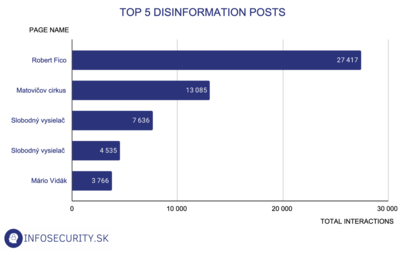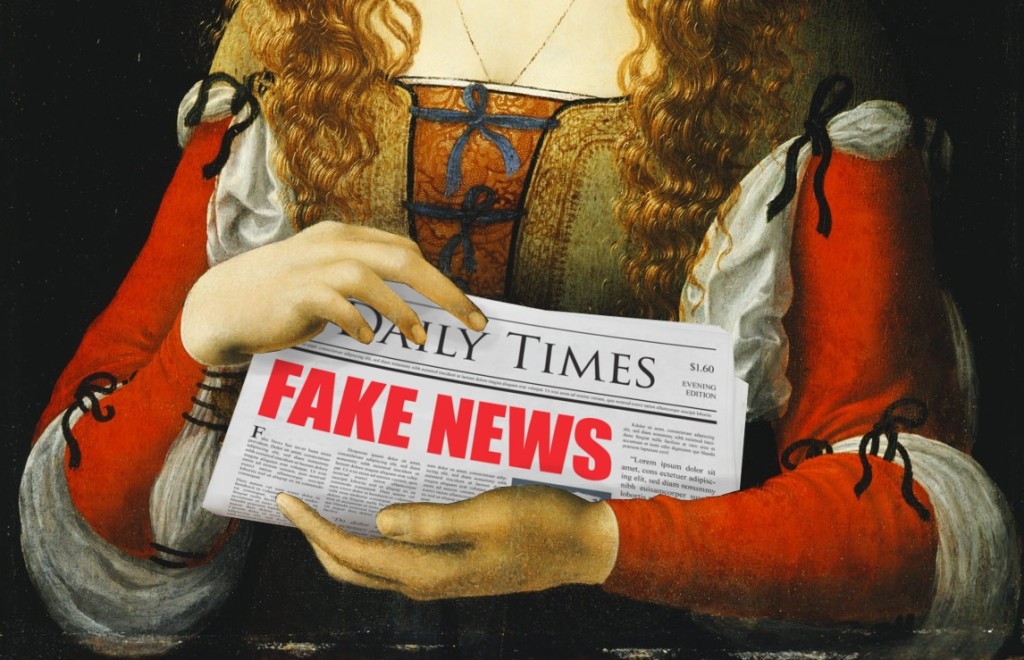Infosecurity.sk provides an overview of disinformation trends that have been on the rise in the last two weeks:
- Sanctions against Russia have become the primary topic of Slovak disinformers. They spread false narratives, often in line with the Kremlin’s statements.
- While pointing out the current strong rate of Russia’s currency, they try to paint a picture of a strong Russia, intact despite sanctions. However, the reality is different, as sanctions highly threaten Russia. Propagandists oversimplify the whole issue while appealing to people’s emotions.
- Sanctions are said to hurt Europe more than Russia, with Europe “committing economic suicide”. However, this is an exaggeration, which is intended to undermine the joint efforts of the European Union (EU).
- Slovak partners and allies are also under attack. Disinformation narratives say that the United States and the United Kingdom have dictated sanctions to Europe, without being affected by them. However, both countries face the same problems, especially record-high inflation.
- Using the analysis of Facebook posts, we looked at the most trending posts from Slovakia regarding Western sanctions against Russia. All actors in the analysis mislead and abuse the issue for their interests.
Do Sanctions Work?
In recent weeks, a new disinformation narrative has become prevalent: sanctions against Russia are not working, Russia has become even stronger, and sanctions are essentially Europe’s economic suicide. This narrative is spread by pro-Kremlin disinformers. At the same time, they often parrot statements from the Russian government or Vladimir Putin himself.
Russia’s ruble surged to a seven-year high against the US dollar and has become the best-performing currency in the world this year. Also, Russia is raking in record oil and gas revenue, receiving €93 billion in fossil fuel exports during the war’s first 100 days. All of that despite sanctions.
These simple facts lead many to believe that Western efforts to punish and deter Russia do not work, and Russia is stronger than before. However, that is not the correct interpretation of the facts.
To see which disinformation narratives are trending in Slovakia at the moment, we can look at the headlines of the recent articles by Infovojna, a well-known disinformation outlet:
- American disinformation about Russian bankruptcy. Russia is sinking the US dollar
- EC President von der Leyen, a fanatic supporter of suicidal anti-Russian sanctions, calls on EU consumers to save energy
- Russia is earning even more from energy due to increased oil imports to India and China. Meanwhile, because of the embargo, Western countries are ruining their economies and the lives of their own citizens by an enormous increase in the price of everything
- High energy prices because of Putin are nonsense. Slovaks pay billions of euros for the destruction of Europe
Even though Infovojna only shares articles from other media, it changes their titles in a very manipulative way.
A strong ruble is not reflecting the strength of Russia’s economy. Max Hess from Foreign Policy Research Institute calls the Russian currency the “Potemkin ruble” and argues that, in fact, the strength of the Russian currency is not a plausible economic indicator anymore. Russia is now cut off from the SWIFT international banking system and blocked from trading internationally in dollars and euros. Thus, imports from a broad sample of Russia’s trading partners are collapsing.
Also, the Russian ruble is no longer a freely convertible currency. Sanctions are working and have a devastating effect on Russia, but their effects are only now beginning to show. In the long run, the Russian economy is not nearly as strong as pro-Kremlin propagandists present it.
Pro-Russian actors talk about Europe’s economic suicide, but these claims are exaggerated. Yes, sanctions are one of the reasons for the current rising inflation. However, they are not the only cause, and in the end, the sanctions are hurting Russia way more. Disinformers are deceiving people by telling them that sanctions have a catastrophic effect only on the West and that Russia is intact. However, this is simply untrue.
Although Russia has managed the immediate effects of the sanctions so far, it still faces many devastating problems in the long run. Sanctions have hit the aviation and car industries hard. Western companies are exiting, leaving people without jobs. Inflation is still high, and the standard of living of the majority of the population is going to decrease significantly.
Disinformation actors also suggest that sanctions in Europe have been dictated, in particular by the United States and the United Kingdom, which are allegedly not so affected and ultimately benefit from them. However, reality shows that inflation in the US is reaching 40-year highs, and food and gas prices have skyrocketed. The United Kingdom is also experiencing 40-year inflation highs and has the highest inflation in the G7.
Demagoguery in the Debate on Sanctions
In the narrative on sanctions against Russia, we can observe several propaganda tools that accompany this narrative.
Activating strong emotions. Propagandists point out that sanctions negatively affect the domestic economic situation. They refer to high inflation and rising prices, suggesting that people have empty wallets and even starve. As these issues pose an existential threat to people, they are more prone to react to this kind of rhetoric with strong emotions such as anger, frustration, hatred, or fear.
Oversimplification. Like other economic issues, sanctions are complex and require in-depth knowledge to be adequately understood. Propagandists simplify problems and look for uncomplicated solutions, although they are often incorrect.
Attack on opponents. Several analyzed opposition politicians seek to gain political points by attributing all the current problems to the ruling coalition. However, these issues are often global, and governments worldwide are dealing with them as well.
As an illustration, we can look at the recent speech of Ľuboš Blaha, an opposition politician from Smer-SD, in the Parliament. As Blaha is blocked on Facebook for violating the community’s rules, he published the recording of his speech on Telegram, where it reached almost 30,000 views. Various propagandist methods can be found in his speech.
He appeals to the people’s emotions by saying that sanctions are not against Russia, but against Slovaks, against Europe: “We are shooting ourselves in the foot.” According to him, sanctions did not change one thing in Russia’s actions, while we see the negative effects of sanctions when we refuel or do grocery shopping. “Rents, mortgages, everything will go high. Thousands of teachers and nurses will quit. The whole social system is falling apart.”
When explaining what effects sanctions have, Blaha is saying: “Logic! You don’t need to be an extra smart economist to understand that. All you need is a simple common sense!” And, as one could expect, he is suggesting that coalition parties do not understand anything and do not even try to solve the social problems of Slovaks.
Well-Known Actors Are Spreading Disinformation Narratives about Sanctions
The graph below shows the most popular Facebook posts on the Slovak disinformation scene in the last two weeks. Posts were evaluated based on the total number of interactions (the sum of all reactions, comments, and shares). Posts in the analysis have been filtered only for those containing the keyword sankcie (ENG: sanctions).

The first place belongs to the former Prime Minister and current opposition leader, Robert Fico. In the video, he argues that sanctions will mainly harm the EU while the United States will not be affected. He suggests that the conflict must have a source – in this case, he says, it is years of killing the Russian minority in Ukraine.
Matovičov cirkus, a satirical site critical of the current Slovak government, shares a video of Vladimir Putin. The caption states: “Brussels sanctions against Russia just hit Slovaks and their wallets, and [Slovak Prime Minister] Heger happily supports it all.” In the video, Putin is jokingly saying that the Western countries refuse Russian gas, do not develop nuclear energy, and so, soon they will have to use wood. Even though people in the comment section believed that the video was recent, we found that the original footage is from November 26th, 2010.
Slobodný vysielač, a disinformation radio station, criticizes Slovak Foreign Minister Ivan Korčok for arguing that sanctions against Russia do not cause high food prices. In another post, Slobodný vysielač targets the green policy of the EU.
Lastly, Mário Vidák, a popular disinformer on social networks, shares the same article about Foreign Minister Ivan Korčok. Vidák is behind disinformation media Magazín 1 and is associated with the far-right extremist ĽSNS opposition party.
Project Infosecurity.sk organised by STRATPOL – Strategic Policy Institute and Slovak Security Policy Institute, which is supported by the Prague office of the Friedrich Naumann Foundation for Freedom, continuously monitors the activities of both Slovak and foreign disinformation actors, but focuses mainly on the former. The project activities are built upon daily monitoring of emerging disinformation, hoaxes, and conspiracy theories in the online information space. This approach allows the analysts to identify disinformation posts and narratives that resonated with the public the most, as well as to find out where they originated, and how they spread and evolved on social media. The report takes the form of a bi-weekly summary of arising trends in the spread of malicious information content online. Based on that, Infosecurity.sk can warn the public about emerging and current trends in the field of disinformation, manipulation, and propaganda.
The article was originally published at: https://www.freiheit.org/central-europe-and-baltic-states/pro-kremlin-disinformers-slovakia-are-using-western-sanctions
Continue exploring:
There Will (Not) Be Any More Health Professionals: Slovak Perspective
Can Recession Stop Rise of Populism? Examples of France and Spain



